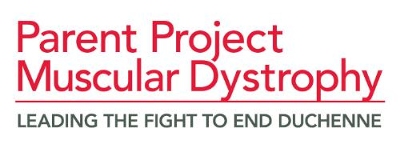PPMD Hosts Muscular Dystrophy Advocacy Conference at Capitol Hill

 Over 150 advocates associated with the organization Parent Project Muscular Dystrophy (PPMD) gathered on Capitol Hill for PPMD’s Annual Advocacy Conference in the hope of helping accelerate the creation of federal policies to develop and provide treatment options for Duchenne muscular dystrophy (DMD). The meeting between the advocates and more than 200 House and Senate offices took place two weeks ago, with the common purpose of ending the disease.
Over 150 advocates associated with the organization Parent Project Muscular Dystrophy (PPMD) gathered on Capitol Hill for PPMD’s Annual Advocacy Conference in the hope of helping accelerate the creation of federal policies to develop and provide treatment options for Duchenne muscular dystrophy (DMD). The meeting between the advocates and more than 200 House and Senate offices took place two weeks ago, with the common purpose of ending the disease.
The two-day conference began with a meeting of the organization’s Adult Advisory Committee. The event gathered Duchenne patients, families, friends and other advocates who met with House and Senate leaders to share their opinions on federal policies focused on the creation and distribution of novel therapies to treat and eventually cure the disease.
“The fact that we now have a thriving adult advisory committee is a testament to how far we have come in the more than 20 years since PPMD was founded,” believes the founding president of the PPMD, Pat Furlong, in a press release. “I am so deeply inspired by this group of young men and all that they have accomplished during their lives, and am honored that they will lend their voices to our advocacy effort.”
The agenda of the conference was focused on the implementation of several provisions included in the Muscular Dystrophy CARE Act (MD-CARE Act) law, such as the expansion of the agenda on research and the update of the current standards of care. The MD-CARE Act was approved by the Senate on September 18th, becoming a milestone in PPMD’s and Muscular Dystrophy Association (MDA)’s advocating efforts after more than a decade of work on the document.
[adrotate group=”3″]
In addition, the PPMD’s advocates at the conference backed the expansion of a Duchenne newborn screening pilot program, which is expected to provide significantly positive outcomes. For 2015, PPMD also stated that it is going to continue its efforts with the U.S. Food and Drug Administration (FDA) to grant a more important role to muscular dystrophy patients in the process of drug review.
Despite the fact that the organization submitted the first patient-initiated guidance document to the FDA eight months ago hoping to decrease the time and costs inherent to the development of drugs to treat Duchenne, the agency’s ruling on the document is still pending. PPMD has also petitioned the Congress for more support in strengthening existing programs dedicated to finding better treatments and an eventual cure for Duchenne, as well as support for the situation with the FDA.
“We must do everything we can to ensure that the day an application for a Duchenne therapy arrives at the FDA, the agency moves as quickly as possible to review the submission and takes into account the invaluable patient and caregiver perspectives and preferences when making such critical decisions,” added Furlong, as the organization is planning to organize a Congressional briefing this year in order to present the work conducted by PPMD and advocate the importance of patients in the process of drug review.
PPMD is dedicated to supporting research projects, scientists and facilities that improve the health and quality of life of patients who suffer from muscular dystrophy. One of the approaches of the organization, in addition to advocating and financial support is by granting awards such as the Certified Duchenne Care Center designation, which was recently attributed to the University of Iowa Children’s Hospital.






